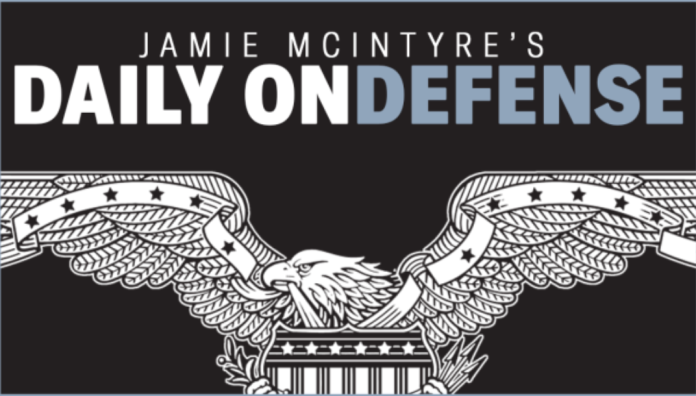80 Years After WWII, US Taxpayers Fund Europe’s Authoritarianism
The article reflects on the importance of May 8, 2025, as the 80th anniversary of the Allies’ victory over Nazi Germany adn the end of World War II in Europe. It discusses how the U.S. was involved in the war before officially entering it, providing critical military and industrial support to the Allies. After the war, the U.S. established a military presence in Europe to counter potential Soviet expansion and assist in rebuilding efforts through initiatives like the Marshall Plan.
However, the author expresses concern that Europe has drifted towards left-wing authoritarianism, citing examples from the U.K., Germany, and France where political dissent is stifled and right-wing parties face significant opposition. These developments, along with rising crime linked to massive immigration, raise questions about the effectiveness of U.S.support and presence in Europe today.
The article argues that while the original aim of liberating Europe from tyranny was noble, the post-war political climate has led to troubling outcomes. the author suggests that U.S. financial and military support cannot substitute for europe’s need to secure its own democratic values and that it might potentially be time for America to reconsider its role as Europe’s protector and financial supporter. The reflection concludes with a call for the continent to reclaim its values and for the U.S. to support those advocating for a safer and more prosperous Europe.
May 8, 2025, marks the 80th anniversary of the Allies’ triumph over Nazi Germany and the end of World War II in Europe. Through Lend Lease and the destroyers-for-bases scheme, we had become involved in the European war much earlier than Hitler’s declaration of war on the United States on December 11, 1941.
American boots on the ground proved decisive in the Western Theater, from North Africa to Italy to Normandy to Germany itself. And American industry and money proved to be an overwhelming advantage, pumping out a nearly inexhaustible supply of matériel for the Allied cause.
Once the war ended, the U.S. decided to maintain a military presence on the Continent and extend its protective hegemony over Western Europe for two reasons. First, to create a bulwark against the specter of global communism embodied by the new Soviet bloc. Second, to keep a watchful eye on the troublesome European powers that had started two world wars. Through the Marshall Plan and other programs, the U.S. pumped in billions of dollars to help rebuild the shattered ruins of Europe while providing the vast military presence necessary to ward off any potential Soviet aggression.
And we’re still there today. But if you look at the state of the Continent now, it’s hard to justify our continued presence and support. We stormed the beaches of Normandy to rid Europe of tyranny, but in the decades since, the continent has succumbed to a wave of left-wing authoritarianism.
In the United Kingdom, supposedly our closest ally, government authorities lock up people for silently praying, and in some cases for just offering to chat within the vicinity of abortion facilities. Under a new “online safety” law, the U.K. has charged almost 300 people for so-called “hate speech” on social media. The law criminalizes “false information intended to cause non-trivial harm.”
Germany’s domestic intelligence service designated Alternative for Germany, the country’s conservative party and the second-largest party in the country’s legislature, as right-wing extremists, putting them on the same level as violent terrorists. That designation was quickly suspended, but the German government has been angling to ban the party for several years as it has grown in popularity.
The French establishment and far-left parties struck backroom deals to shut out National Rally, France’s conservative party, to prevent its victory in the 2024 legislative election. Then, a French court banned National Rally’s leader, Marine Le Pen, from seeking office for the next five years.
Romania’s government canceled its presidential election last year over claims of the classic deep state bugbear — “Russian interference” — after the right-wing populist candidate won the first round.
Meanwhile, practically every Western European government has opened the floodgates for migrants, bringing crime, fraud, and the degradation of western values and civilization. Millions, mostly from Africa and the Middle East, have flooded in, and European governments have sat idly by as they replace native populations. In fact, the powers that be on the continent often celebrate the fact that their countries are being overrun by people who have no ties to western culture or values.
While the U.K. authorities arrest people over edgy memes, they apparently turned a blind eye to the massive “grooming gangs” scandal that took place for decades across the country. Rape sprees, brutal murders, and terrorist attacks have become all too common from Europe’s supposedly “enriching” new members.
And while Europe turns its back on its own values and history, the U.S. is still footing the bill for its defense. A majority of NATO countries, including France, Germany, Italy, and Spain, still don’t meet the defense spending target of 2 percent of real GDP, instead relying on the United States to meet their defense needs. The U.S. has given almost $200 billion in aid to Ukraine, supposedly to prevent a full-scale Russian invasion of the rest of the Continent. Yes, we’re sending billions of dollars to “protect” a place that crushes political dissent and has no sense of self-preservation when it comes to limitless migration.
During a speech at the Munich Security Conference back in February, Vice President J.D. Vance perfectly diagnosed the problem with Europe: “While the Trump administration is very concerned with European security and believes that we can come to a reasonable settlement between Russia and Ukraine, the threat that I worry the most about vis-a-vis Europe … is the threat from within.”
“For years, we’ve been told that everything we fund and support is in the name of our shared democracy values,” Vance added. “Everything from our Ukraine policy to digital censorship is billed as a defense of democracy, but when we see European courts canceling elections and senior officials threatening to cancel others, we ought to ask whether we’re holding ourselves to an appropriately high standard.”
There are some particularly pessimistic commentators who believe that the European victory in 1945 was a complete waste, given how things have turned out. But that mode of thinking presupposes that our only choices then were a Nazi hellscape or a leftist hellscape a few decades later, and not that there were a million other ways the history of Europe could have gone after the death of Hitler. Any serious person can accept that the destruction of the Nazi regime was a good thing but that the post-war reaction has also been disastrous for Europe. V-E Day is worth celebrating, if for nothing else but the immense grit and courage of the Allied soldiers. We can, however, use it as a time to reflect on what Europe has become and what it should be.
As things now stand, the United States is shackled to the corpse of a once-great continent spiraling into an authoritarian nightmare. But, as we learned after both world wars, we can’t save them from themselves, no matter how much money or military might we throw at them. They have to do the work to save their own homelands. We should support those who strive to make Europe safe and prosperous again, but our time as Europe’s piggy bank and protector must end.
Hayden Daniel is a staff editor at The Federalist. He previously worked as an editor at The Daily Wire and as deputy editor/opinion editor at The Daily Caller. He received his B.A. in European History from Washington and Lee University with minors in Philosophy and Classics. Follow him on Twitter at @HaydenWDaniel
" Conservative News Daily does not always share or support the views and opinions expressed here; they are just those of the writer."


